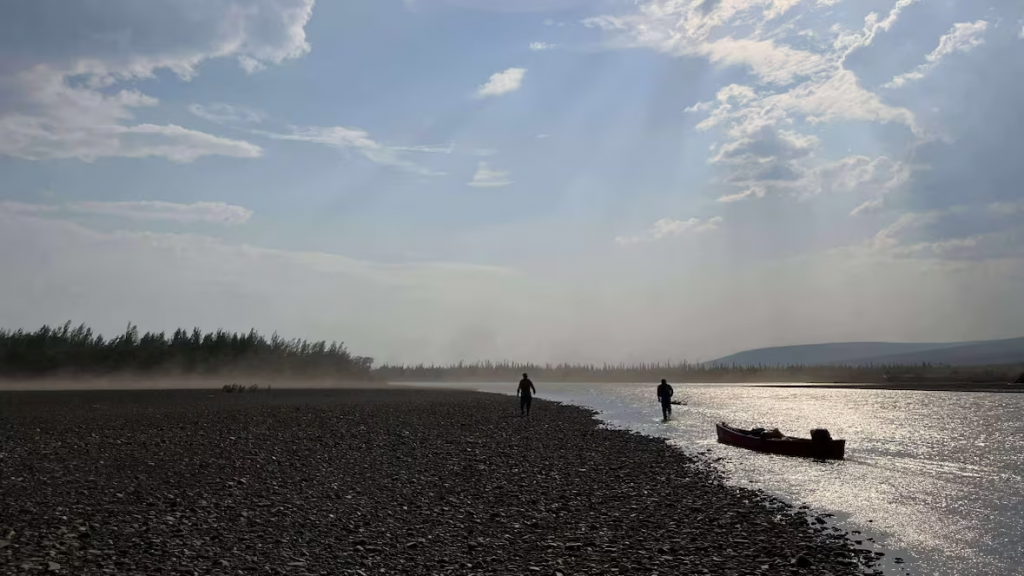New research links Yukon summertime heat to climate change

By
The warm temperatures Yukoners weathered over the summer were in large part driven by climate change, new research suggests.
A new study by Climate Central, an independent research organization, states the temperatures tracked between June and August in the territory were 0.9 C warmer than normal. The territory faced a couple of heat waves over that period.
Kristina Dahl, vice president of Climate Central, says the data is unequivocal and sends a clear signal that climate change is already affecting temperatures, not just in the Yukon but across the 240 countries and nearly 1,000 cities scientists looked at.
“As long as we continue to burn fossil fuels and warm the planet these summertime temperatures are just gonna get hotter and hotter and we’ll see more and more people and ecosystems affected,” she said, adding that hotter and drier conditions increase the risk of catastrophic wildfire.
Earlier this year, wildfire in Manitoba prompted mass evacuations, with First Nations people disproportionately affected. European countries like Portugal were also hit by violent wildfires.
Dahl says particularly important was looking at the North, where climate change is acute.
“These are unique ecosystems [in the Yukon], people sometimes living in remote areas without easy access to health care. It’s a place where the environment is going to be responding to these increased temperatures, whether that’s this summer or over the long term.”
Key findings
From Ho Chi Minh City, Vietnam, to Whitehorse, researchers compiled global weather data and compared it to what Dahl calls a “ghost world” — that is, climate models to simulate a world where climate change doesn’t exist.
From June 1 to August 31, the study states at least 1.8 billion people around the world felt temperatures about twice as likely to be influenced by climate change.
That includes, the research states, Whitehorse and the Yukon more broadly.
The study suggests Whitehorse saw 27 days over those three months with temperatures at least twice more likely influenced by climate change. For a northern comparison, Anchorage, Alaska, had 20. Toronto had 13.
The Yukon experienced 26 days that were more than twice as likely influenced by climate change. It also faced about three weeks when the weather was hotter than 90 per cent of historical local temperatures.
Roughly 1 C increase seems low
Brian Horton, the director of climate change research at Yukon University, said 1 C of warming seems like an underestimation. The territory, he says, has already experienced more than two degrees of warming on annual average from 1950 until now.
Climate Central compared temperatures between 1991 and 2020 for its study.
“We’re experiencing our warming temperatures more quickly in the winter than in the summer,” said Horton, noting a Yukon summer can’t so easily be compared with extreme heat events in other regions, given the different latitudes and, with that, climates.
Still, Horton says the research points to significant warming that could add to deleterious effects on the environment.
“Warmer air temperatures and cooler overnight lows will lead to warmer water temperatures that have immense impact for fish habitat and for the quality of the water in terms of how much dissolved oxygen is in there,” he said.
Related stories from around the North:
Canada: Hot, dry conditions hamper efforts to fight some N.W.T. wildfires, CBC News
Greenland: Alarming, above-average ice loss in Greenland due to rising temperatures, Eye on the Arctic
Norway: Svalbard glacier once survived a warmer climate, The Independent Barents Observer
Russia: Siberia’s 2020 heat wave left lasting impacts on Arctic, study finds, Eye on the Arctic
Sweden: Sweden and Finland urge revision of EU’s forestry climate targets, Reuters
United States: Bursting ice dam in Alaska highlights risks of glacial flooding around the globe, The Associated Press



